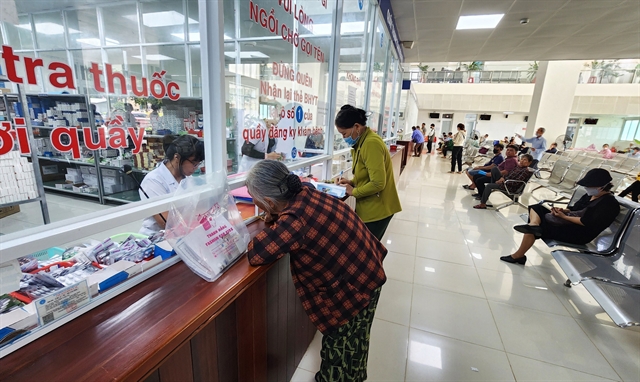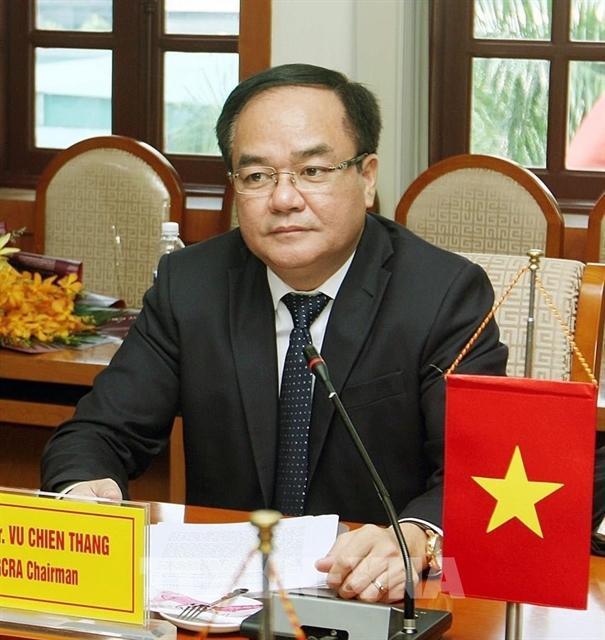 Opinion
Opinion

 |
Deputy Minister of Home Affairs Vũ Chiến Thắng. VNA/VNS Photo
Deputy Minister of Home Affairs Vũ Chiến Thắng spoke to Vietnam News Agency about the draft of a decree on the sanctioning of administrative violations in the field of belief and religion, which aims to encourage organisations and individuals to respect the law, as well as the limits when performing religious and belief activities.
Why is it necessary to issue a separate decree on sanctioning administrative violations in the field of belief and religion when we have already had the Law on Belief and Religion?
In order to ensure strict compliance within the law on belief and religion and quickly handle certain violations, the Ministry of Home Affairs has co-operated with relevant ministries and industries to consult the Government on developing a draft decree on sanctioning of administrative violations in this field.
The promulgation of the decree is to perfect the construction of a socialist rule-of-law state; ensuring everyone, including individuals and religious organisations, live and work in accordance with the Constitution and the law. At the same time, we want to create unity and synchronisation in the provisions of the law on belief and religion as well as the law on handling administrative violations.
The promulgation of a separate decree on sanctioning of administrative violations in the field of belief and religion aims to warn all organisations and individuals to respect the law when performing religious and belief activities, knowing the limits so not to violate obligations and responsibilities, as well as the prohibited acts prescribed in the law on belief and religion.
In addition, it aims to improve the effectiveness of the implementation of the Law on Belief and Religion by agencies, organisations and individuals.
After nearly five years since the Law on Belief and Religion took effect, we are preparing for the issuance of a sanctioning decree. Is this the right time to issue the decree?
Immediately after the Law on Belief and Religion was passed, the Ministry of Home Affairs actively and proactively coordinated with other ministries and branches to implement the process of drafting this decree in accordance with the Law on Promulgation of Legal Documents.
However, during the process, the Ministry of Home Affairs received many different opinions from dignitaries, priests, religious organisations and advisory agencies on State management of belief and religion, as well as local governments in many provinces and centrally run cities.
All opinions suggest that we consider and be cautious when stipulating administrative violations to avoid being taken advantage of and misrepresented on belief and religion policies; regarding the subject of application, the form of sanction. Also, it is necessary to take time to review the implementation of the Law on Belief and Religion and Decree No. 162/2017/NĐ-CP (detailing a number of articles and measures to implement the Law on Belief and Religion) as a basis for considering the promulgation of the sanctioning decree.
On that basis, in 2021, the Ministry of Home Affairs conducted a preliminary review of three years of the implementation of the Law on Belief and Religion and Decree No. 162/2017/NĐ-CP.
According to reports from localities, currently, the problem of violating the law is very complicated, even related to prohibited acts specified in the Law on Belief and Religion. However, we are lacking regulations and sanctions to deal with such acts. Therefore, it is necessary to have provisions on sanctions according to the law.
Religion is a sensitive field, and hostile groups often take advantage of it to distort the image of the Party and State. Although the new decree is at draft stage, many individuals living overseas have said that, with this decree, the Government has strengthened control over the activities of religious organisations, limiting religious freedom. How do you respond to this?
We are well aware that religion is a sensitive field, so in the process of developing the draft decree, we have fully implemented procedures according to the Law on Promulgation of Legal Documents. The drafting board has widely consulted with agencies, organisations, the people, and religious organisations in writing, via seminars, talks and meetings. On the basis of these comments, the drafting board will adjust to complete the draft decree to ensure its feasibility when issued.
As Việt Nam is a member country of the International Covenant on Civil and Political Rights, the Law on Belief and Religion has ensured compatibility with international laws. In particular, along with the management of belief and religious activities, the State also creates conditions for individuals and religious organisations to exercise their rights in accordance with the law.
Recently, religious organisations have performed very well in charity work. Funds raised have supported many people in difficult circumstances as well as for pandemic prevention and control. However, this donation is spontaneous and often not notified to the competent authority, and the collection and expenditure is rarely fully updated. Will this be tackled with in the draft decree?
All religious doctrines aim at serving people and spreading the values of truth, goodness and beauty in social life. Charity and social activities are the needs and attachments of religions in accordance with the guidelines and policies of the Party and State. In fact, charity activities of religion, to a certain extent, have contributed to sharing the burden with the State. Therefore, promoting the roles and responsibilities of religions in Việt Nam to participate in charity activities has been identified as an important requirement and task in the current situation.
However, besides the positive factors, there are certain concerns about religious charity activities, such as raising and mobilising too much of people's contributions, while the collection and expenditure are not really public and transparent. The issue of sanctioning for violations of regulations on donations related to religious organisations set forth by the draft decree is appropriate and feasible because, firstly, the issue of charity and donations by religious individuals and organisations has been specified in Article 55 of the Law on Belief and Religion. Violations will be handled according to the provisions of the coming decree.
Secondly, when the sanctioning for violations of regulations on donations related to religion takes effect, it will minimise spontaneous work of religious organisations in charity, creating publicity, transparency and prestige for religious organisations in donation activities in order to better serve the activities of religious organisations and for the sake of social goodness. — VNS




